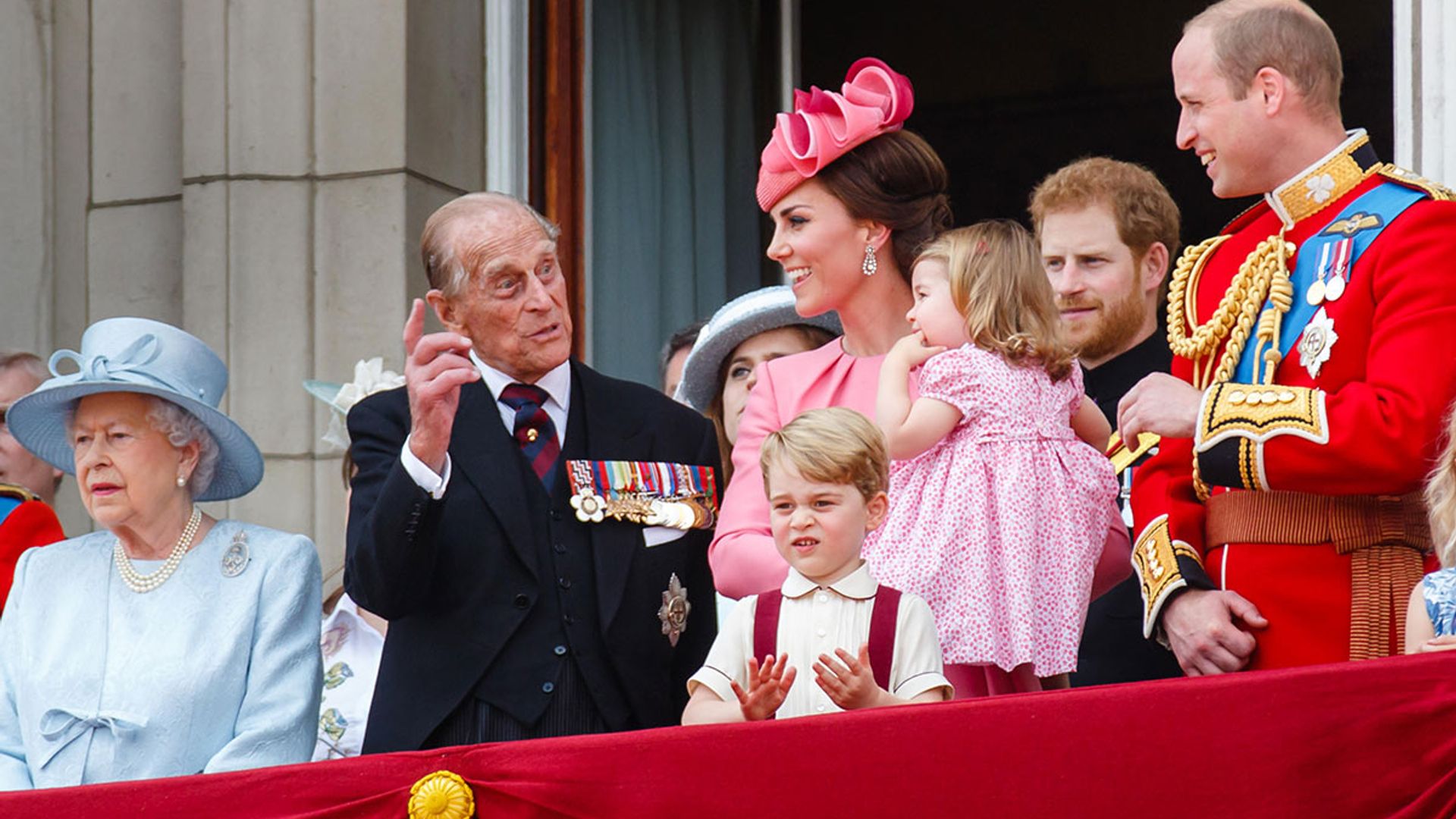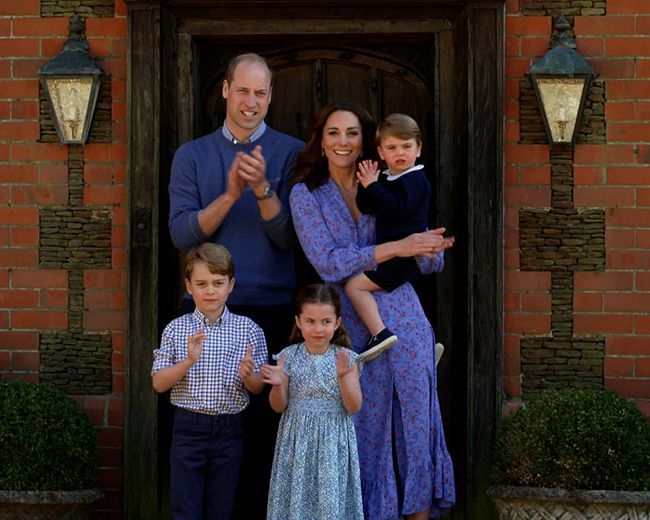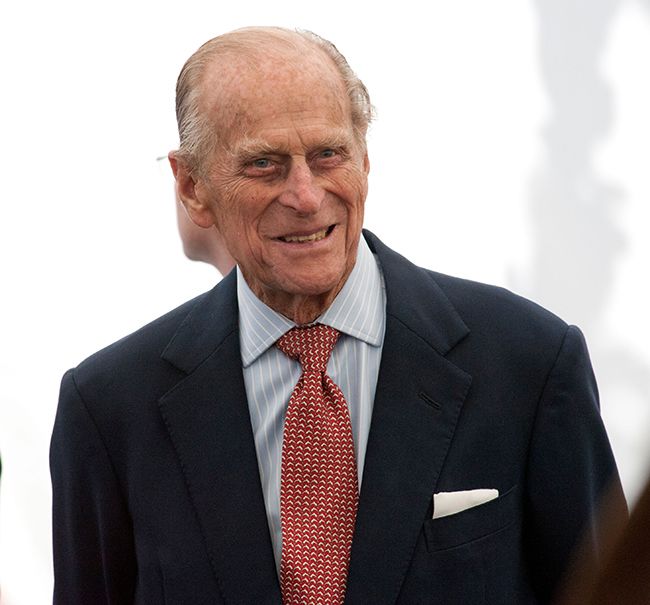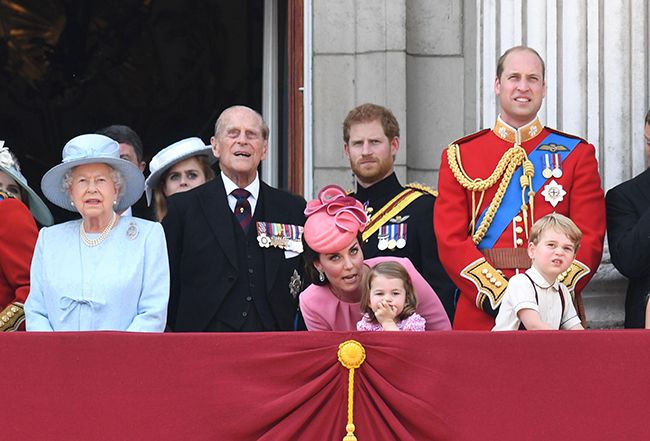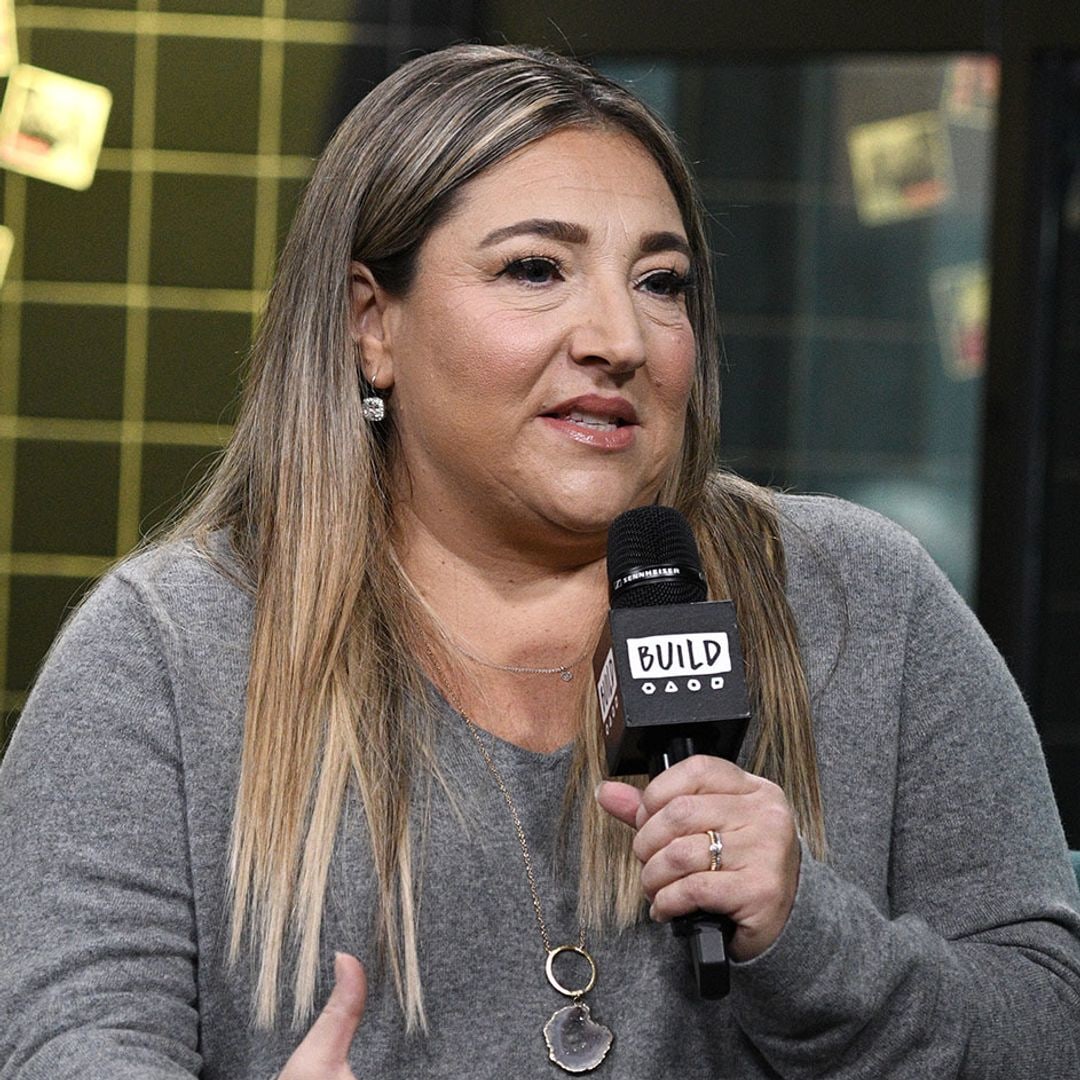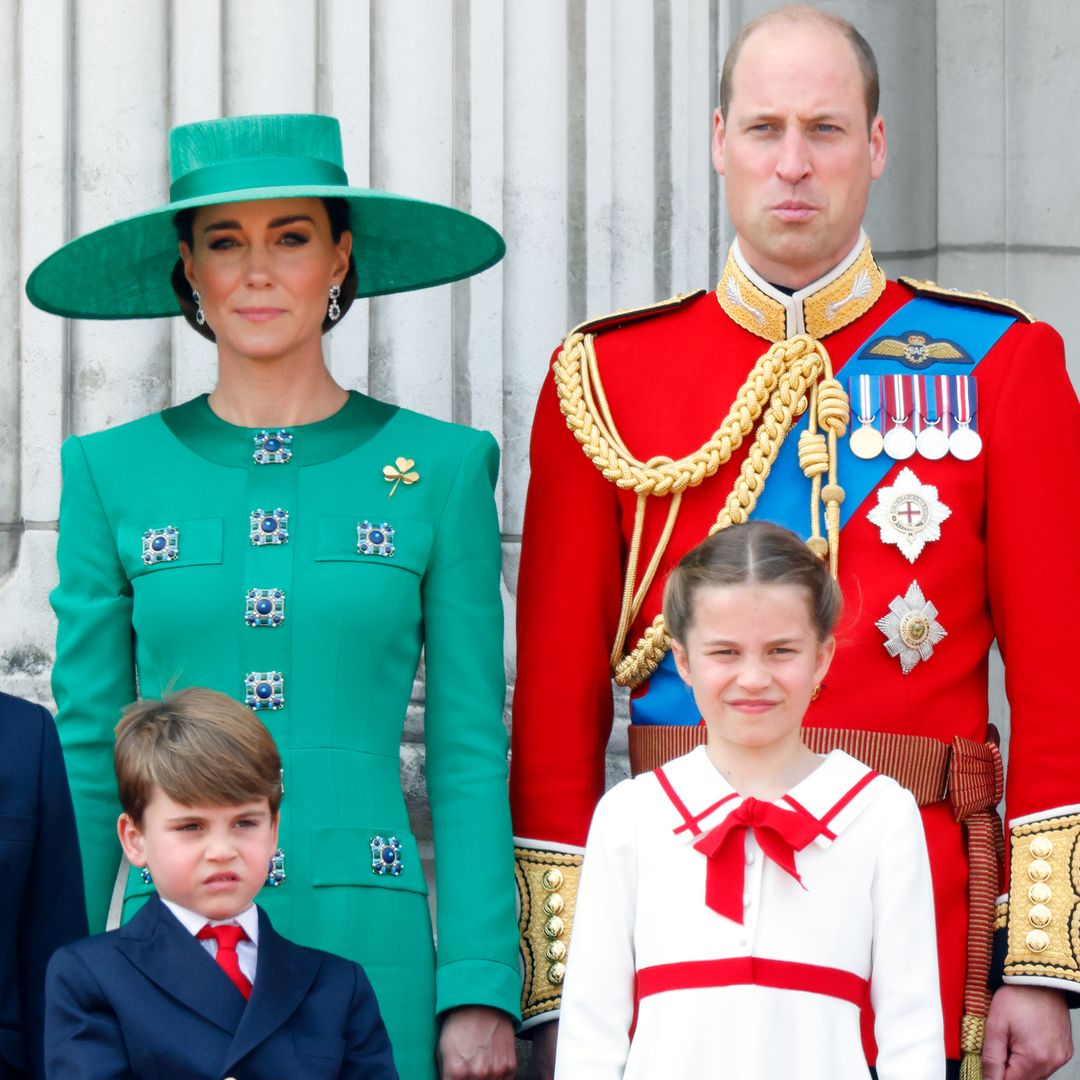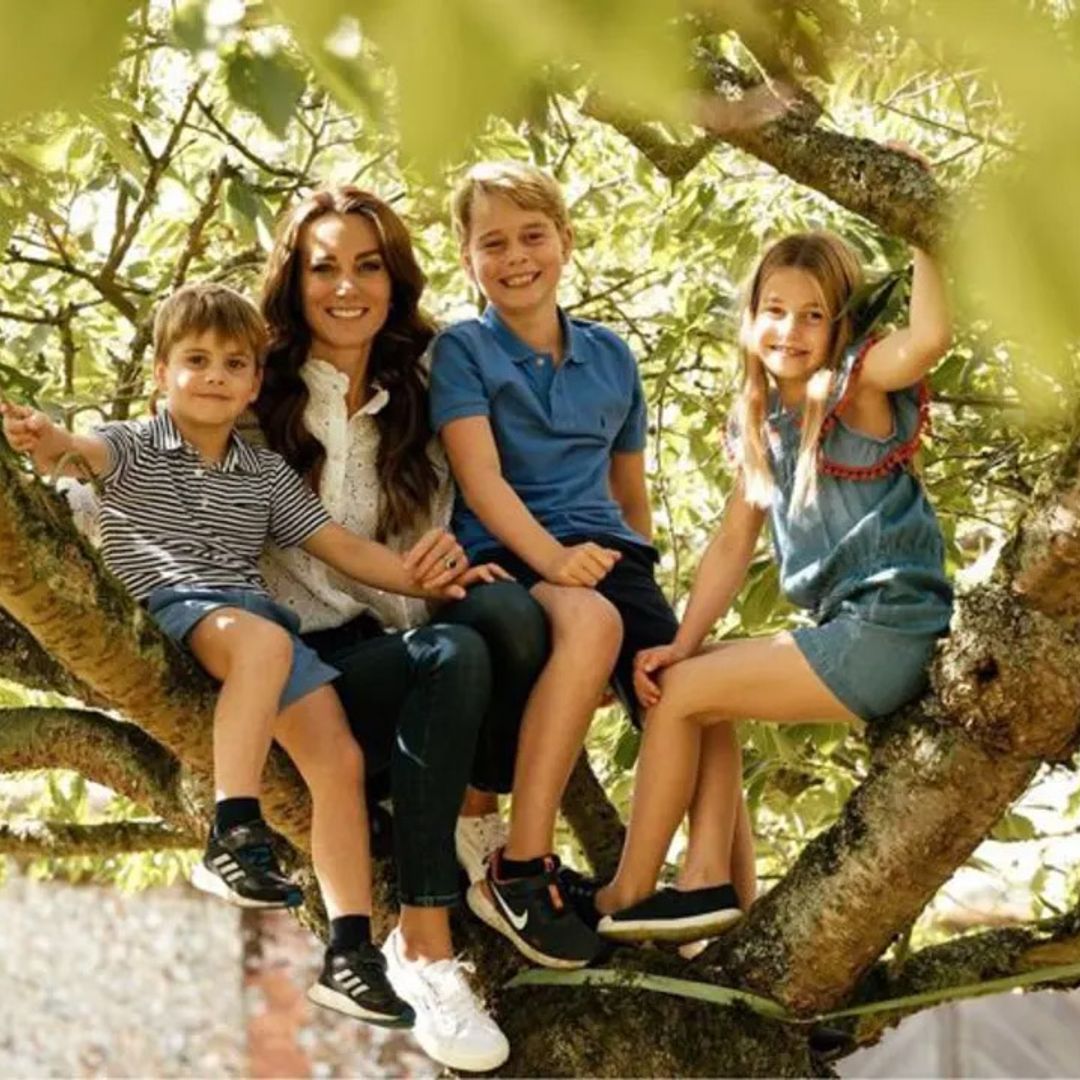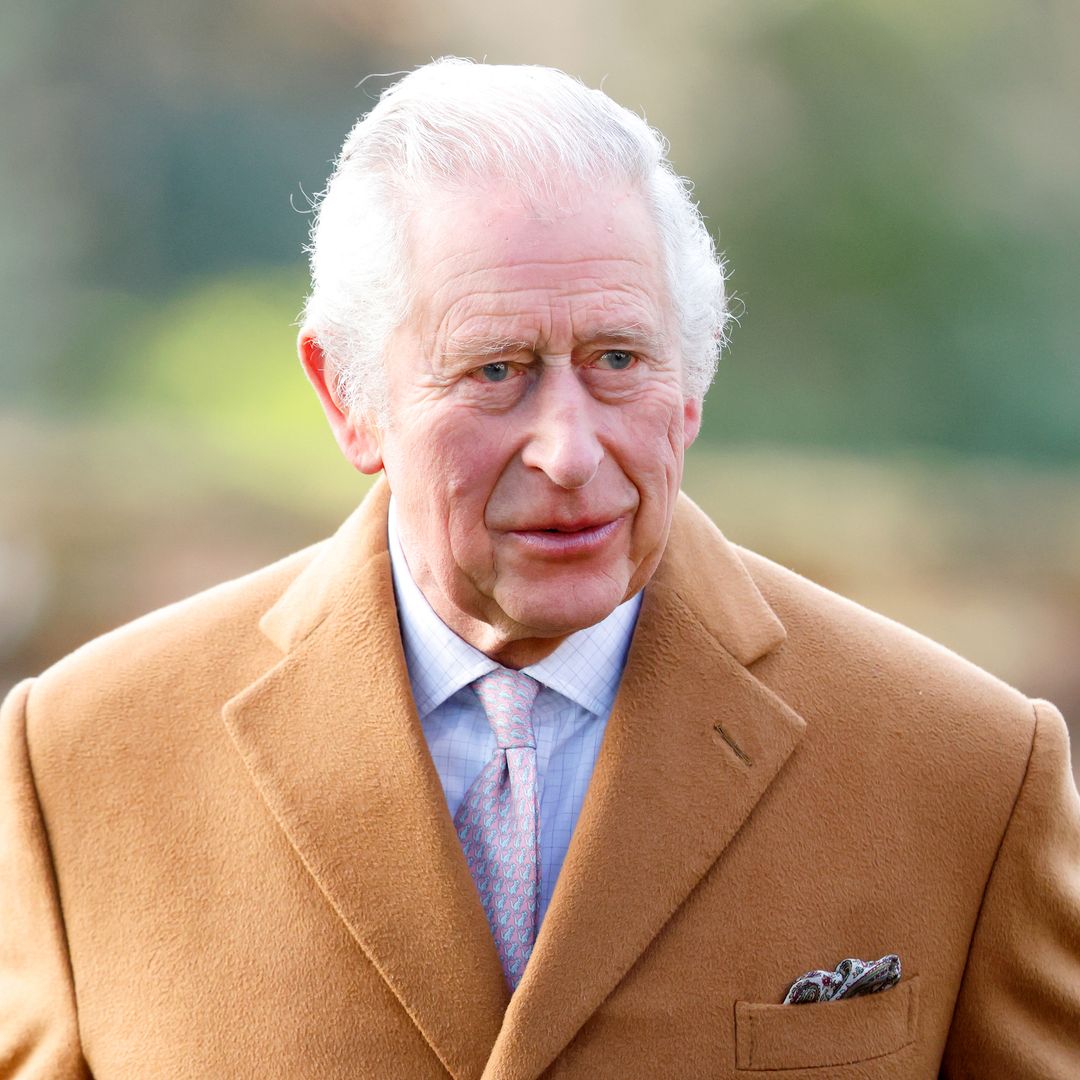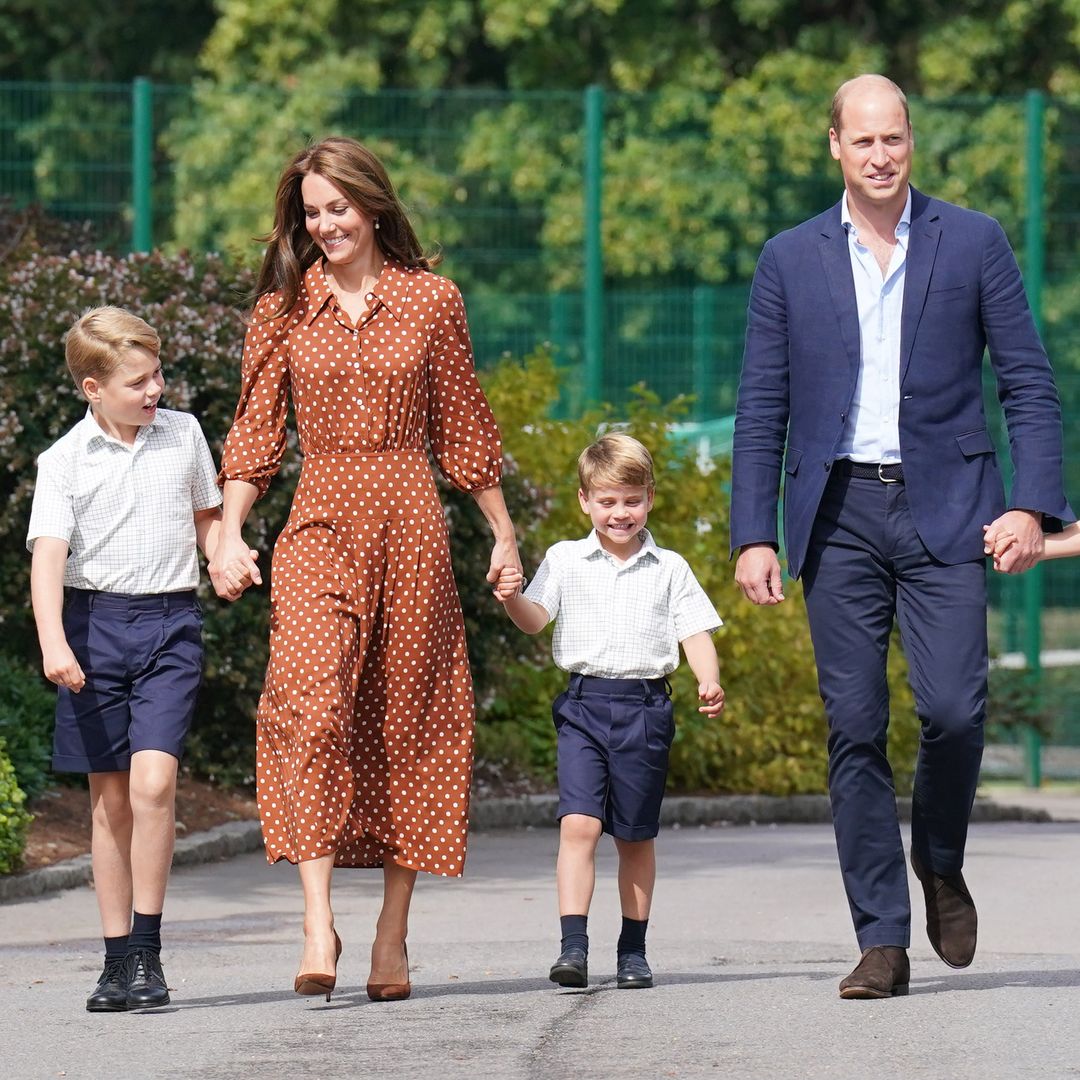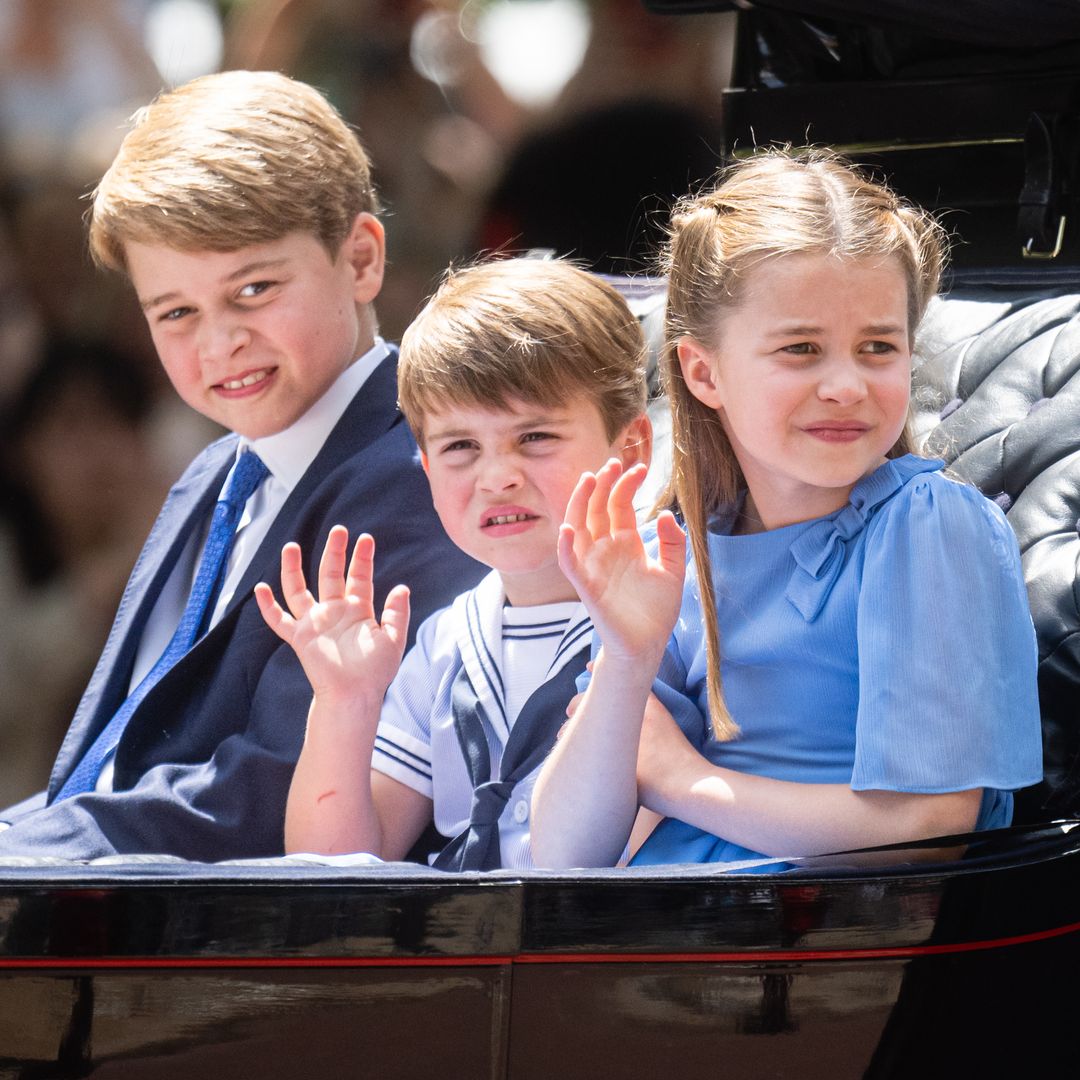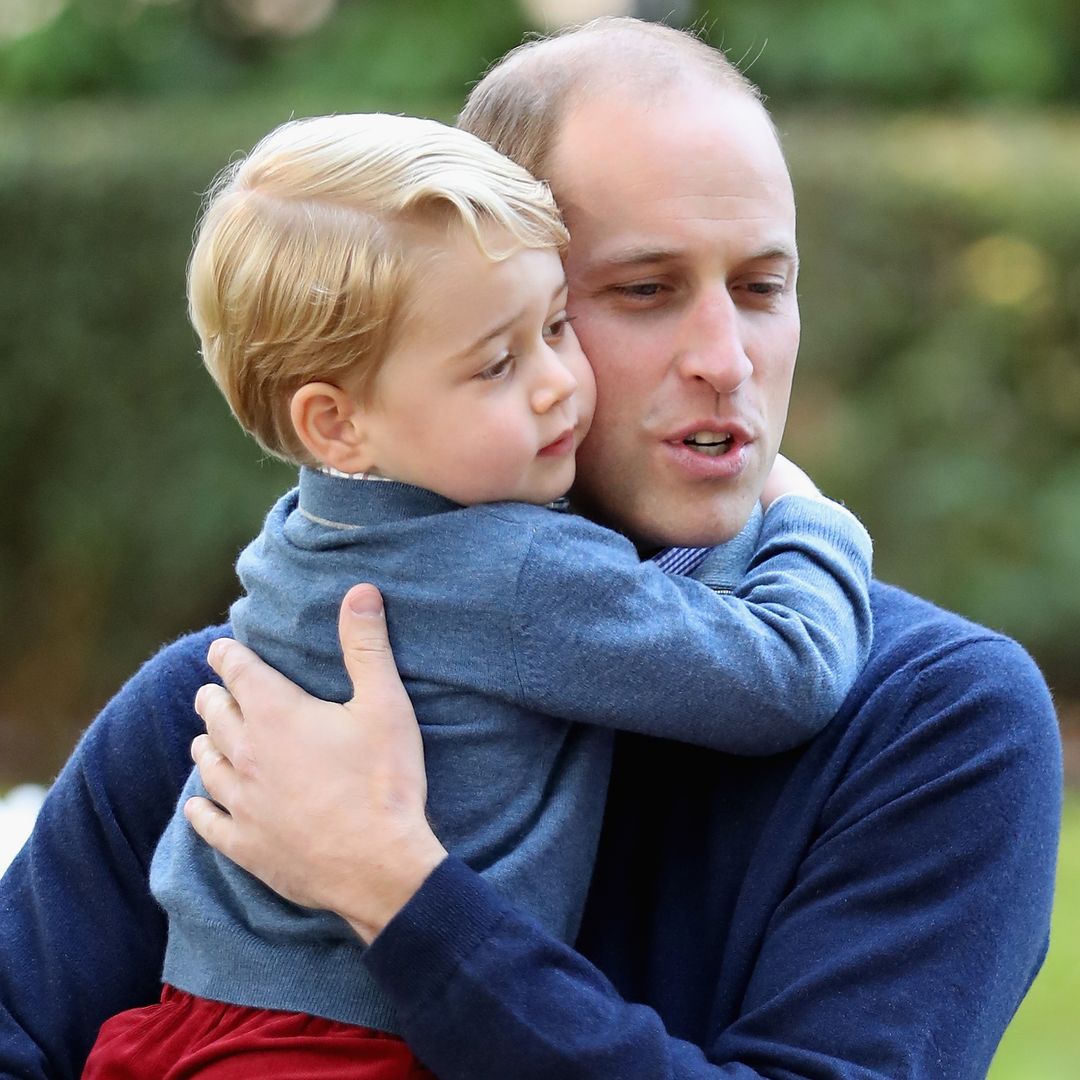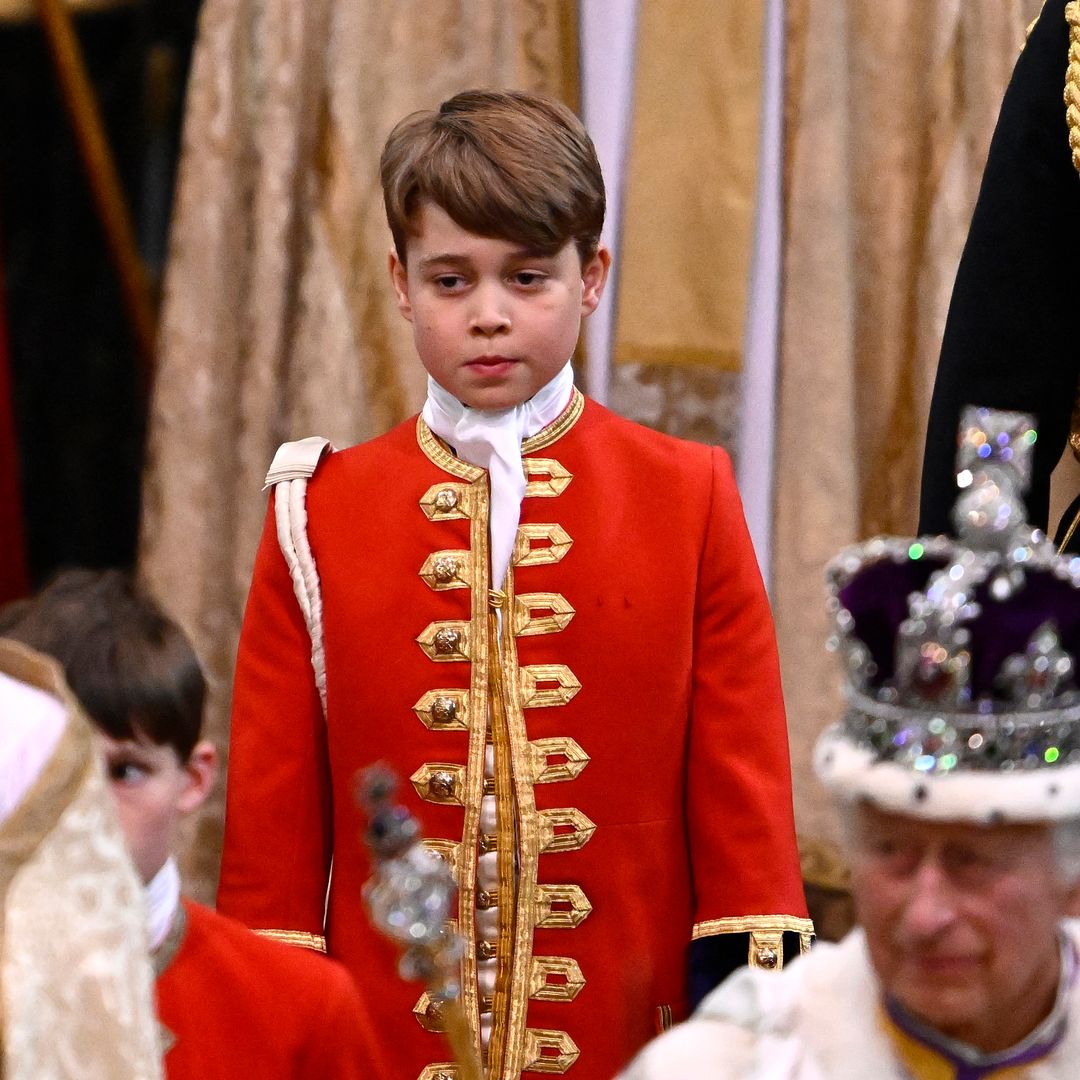The royal family and indeed the entire world are mourning the death of Prince Philip, the Duke of Edinburgh, who sadly passed away on Friday 9 April at the age of 99.
While the Queen, his four children and his grandchildren will be heartbroken, Philip's death will also be a huge shock for the younger members of the royal family such as Prince George, age seven, Princess Charlotte, five, and Prince Louis, two.
MORE: Prince William and Kate share statement following Prince Philip's death
WATCH: Prince Philip's best family moments
For the Queen and Duke's 73rd wedding anniversary, the three children made them an adorable card, which showed the love between the generations. At the time, Buckingham Palace released a portrait of the monarch and her husband sitting in the Oak Room at Windsor Castle, as they beamed at the colourful card made by their great-grandchildren.
Now, as the royal family come to terms with Philip's passing, his great-grandchildren may find it particularly hard to understand why he is no longer around.
The Cambridge family
Here, we speak to a child psychologist and the royal-approved Norland nanny agency, to understand how Prince Philip's death will affect the royal children…
HELLO! spoke to Social Psychologist Dr Sandra Wheatley who specialises in parenting…
How children deal with grief
Sandra says: "Children often deal with death in a very different way to adults, in as much as they haven't had as much practice. Like most things in life, the more we experience them, the more skills we have to deal with them.
"For very young children, their main source of information is going to be from those who are closer to them. It's very much about their close family and it depends on how much experience that family has had dealing with death.
"For small children, it can be very difficult for them to comprehend that somebody has died and is therefore no longer going to be around at all. If it's somebody that they saw infrequently, it's going to take them a lot longer to fully understand – it could be six months before they really understand that they haven't seen that person for a long time.
MORE: How Princess Eugenie and Zara Tindall paid the ultimate tribute to Prince Philip before his death
"It can be difficult for adults to deal with if they are close to the person who's died and the child continually 'checks' with them– not in a mean way or doubting you, but they're seeking verification that what they understand has happened, has happened. That's what children do.
"For example, if William and Kate were particularly close to Prince Philip, for them, it could be that they have to take a deep breath. [Those conversations] could happen in a public place and it could catch them unaware that their child has just asked about this. You want to give your child your full attention and to reassure them.
Ther late Prince Philip, Duke of Edinburgh
How parents can explain death
"Often, the thing that children will relate it to is something more immediate, such as a pet dying. It's the permanence of it. There are similarities though, and if it helps your children to understand, then don't worry. It's about making sure that the kids are ok and they grasp the permanence of the situation. It is a change that's going to last.
"It's very important to be honest and consistent about how you explain it and it's absolutely imperative that you listen to what they say and the words that they use because it helps so much for them to be reflected back to them.
"Perhaps they hear vague references to someone 'passing away' but they might think 'Passing away? Does it mean we walked past them?' For children, it can be very difficult. If they elect to use the word 'dead', run with it. If that helps them to adjust to it more quickly, more thoroughly and more honestly."
MORE: Prince Philip's sweetest family pictures with his children and grandchildren
How to deal with the aftermath
"It might also feel like it's been going well for a few weeks and the kids have adjusted, but in six months' time they may see a photograph of him or in a year's time at the anniversary of his death, that might catch them out as well – it's a long term situation, so think through the way you describe it. As the children grow, their great grandfather will still be dead but he is present because he is part of them and part of their family.
"Be proactive, share photos… For example, if they have photographs of Philip at George's age now, they could pick out the similarities with him. Continuing to talk about him and remember him in a positive way is very important because you don't want to instil a fear of bringing it up.
"The other thing to bear in mind is that I can give advice, but I am not suffering, I have not lost a loved one. Go easy on yourself as a parent or grandparent, cut yourself some slack and cry together. Don't let the kids think that you mustn't cry in front of each other. It's ok."
HELLO! also spoke to Julia Gaskell, Head of Training and Consultancy at Norland Nannies
William and Kate have a nanny, Maria Teresa Turrion Borrallo, from the prestigious Bath college, Norland, who has cared for their children since Prince George was around eight months old. Maria will likely play a part in helping the children cope with the loss of their great-grandfather.
A Norland nanny's bereavement training
Julia told us: "The students at Norland get a masterclass and information on how to deal with bereavement. The main source of information is Winston's Wish, which is a wonderful website for all ages of children. We try to think about the level of development of the child and what would be appropriate to tell them.
"The first thing we'd ask our Norlanders to do is to consider the age and circumstances of the children, and what they might already know or have experienced around death.
"We teach our Norlanders to discuss death in an open manner as appropriate to the age of development, and to avoid euphemisms, so to try and use real words because children will take you literally. For example, if you were to say, 'Grandad has gone up to the clouds', next time a child is on a plane, they might look for grandad in the clouds."
MORE: Princess Anne reveals 'life will be completely different' without father Prince Philip
Prince Philip with his family at Trooping the Colour
Strategies to help grieving children
"Depending on the age, we'd have different strategies for helping children cope with grief. For example, we'd share stories with them – there are some amazing books out there – then we might do something like a memory box so they can put objects that they associate with their loved one in the box, and get them out and look at it.
"We might do a family tree and then put buttons for special events on it, happy things that they did with their loved one.
"You'd also have to consider the relationship the child had with the one who's died because for some children it might be a complicated relationship. And talking about it, because we know that keeping grief in is bad for you physically as well as mentally.
"Resilience is something that our Norlanders will be doing with children all the time, so it's that ability to bounce back from things, that ability to cope with setbacks and that's something we'd hope would underpin all of their practice.
How Norland nannies explain grief to children
"All behaviour in children is a form of communication, so we'd encourage our Norlanders to observe behaviours very quickly and think about it as an iceberg – you see what's at the top but something bigger might be going on underneath.
"An analogy we use is that to begin with, the grief is huge; it fills you all up. As you come to terms with it gets smaller but it's always there – it never goes away. It gets smaller over time but it's unrealistic for you to expect it to completely go away.
"It's really being open about it. We would try and encourage children to understand what they've lost, to help them find comfort, and by using the appropriate words for their level of development. The younger they are, the harder it is for them to understand.
The differences in ages and grief
"[A two-year-old] might be aware of the altered dynamics in the family because whatever happens in a family affects all of the children. I would suggest that a two-year-old wouldn't really be aware of a loss, other than the altered dynamics in the family depending on how they react to it.
"A five to eight-year-old is starting to understand that death is permanent and forever, whereas before that age they don't really understand that.
"At nine years plus, they understand fully that it's final and they get more curious about the physical aspects of it. What we say to our Norlanders is by knowing developmentally where the child is, you can predict where they need more support.
"The other thing we'd encourage our students to do is to have the life cycle within the everyday curriculum - growing plants, stick insects or tadpoles or whatever it is, so they start to understand that life cycle as a more natural thing. You can have those conversations within something that's not too emotionally charged. If a tadpole or a flower died, it's a bit different to a relative and they get used to that idea."
Make sure you never miss a ROYAL story! Sign up to our newsletter to get all of our celebrity, royal and lifestyle news delivered directly to your inbox.
